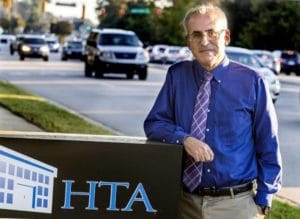Stuart Levin, 2017 Health Leader
Title: Physician
Organization: Wake Internal Medicine Consultants
Location: Raleigh, NC
Stuart Levin, MD, FACP, FCCP has been in full-time practice at Wake Internal Medicine Consultants in Raleigh since 1994. Dr. Levin works on and lives near Blue Ridge Road in west Raleigh, and founded the Blue Ridge Corridor Stakeholder Advisory Group in 2008 to coordinate planning in this strategically significant area. Following adoption of the District plan by the city of Raleigh in 2012, Dr. Levin became president of the Blue Ridge Corridor Alliance, a 501(c)3 dedicated to implementation of the plan. He also advocated for the process, which led to the grant to fund North Carolina’s first comprehensive Health Impact Assessment in conjunction with planning for the Blue Ridge Corridor. Dr. Levin is vice chair of the newly formed Wake County Population Health Task Force.
After obtaining his BA at Duke and MD at the University of North Carolina, Dr. Levin completed his residency in internal medicine at the University of Alabama-Birmingham and a fellowship in pulmonary and critical care medicine at Yale University. He is board-certified in internal, pulmonary and sleep medicine and a clinical professor of medicine at UNC. Dr. Levin was a recipient of the 2014 UNC Clinical Preceptor Excellence in Teaching award for off-campus faculty and a Raleigh News and Observer Tar Heel of the Week in 2015 for his work on the Blue Ridge Corridor and population health.
Why are you motivated to participate in the Health Leaders Network? How will your participation enhance your current and future work?
I realized pretty quickly during internship that after a 36 hour call with barely 2 hours of sleep, a 10 mile commute to and from work was detrimental to quality of life. As a result I have always tried to live within a short distance from work and eventually joined the 2% of Raleigh walk/bike commuters. While fortunate to have sidewalks available on most of the route to my office next to Rex Hospital, there was little multi-modal connectivity in the remainder of the Blue Ridge Road Corridor district. Raleigh’s rapid growth was clearly auto-centric, and created barriers to physical activity thru an imbalance of preferred transportation modes.
In 2008, I had the flexibility to use some of my free ½ days to schedule meetings among local institutional stakeholders focused on infrastructure planning. These early discussions coincided with the Great Recession when developers nationally began to reconsider the economic costs of urban sprawl and auto-dominated corridors. This process eventually led to formation of the Blue Ridge Corridor Alliance, a 501(c)3 dedicated to smart growth and a vibrant destination in West Raleigh.
As the only practicing physician in the US in charge of a Corridor group, I have appreciated working outside my own silo to enhance opportunities for healthy behaviors. I look forward to participating in the ULI Healthy Leaders Network in its work to further advance the understanding on the ground between health and the built environment at a national level.
